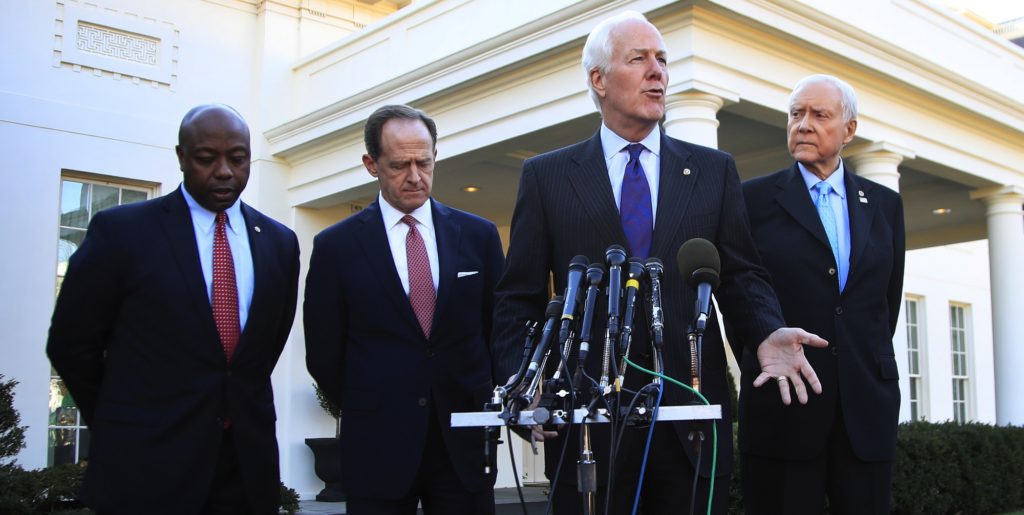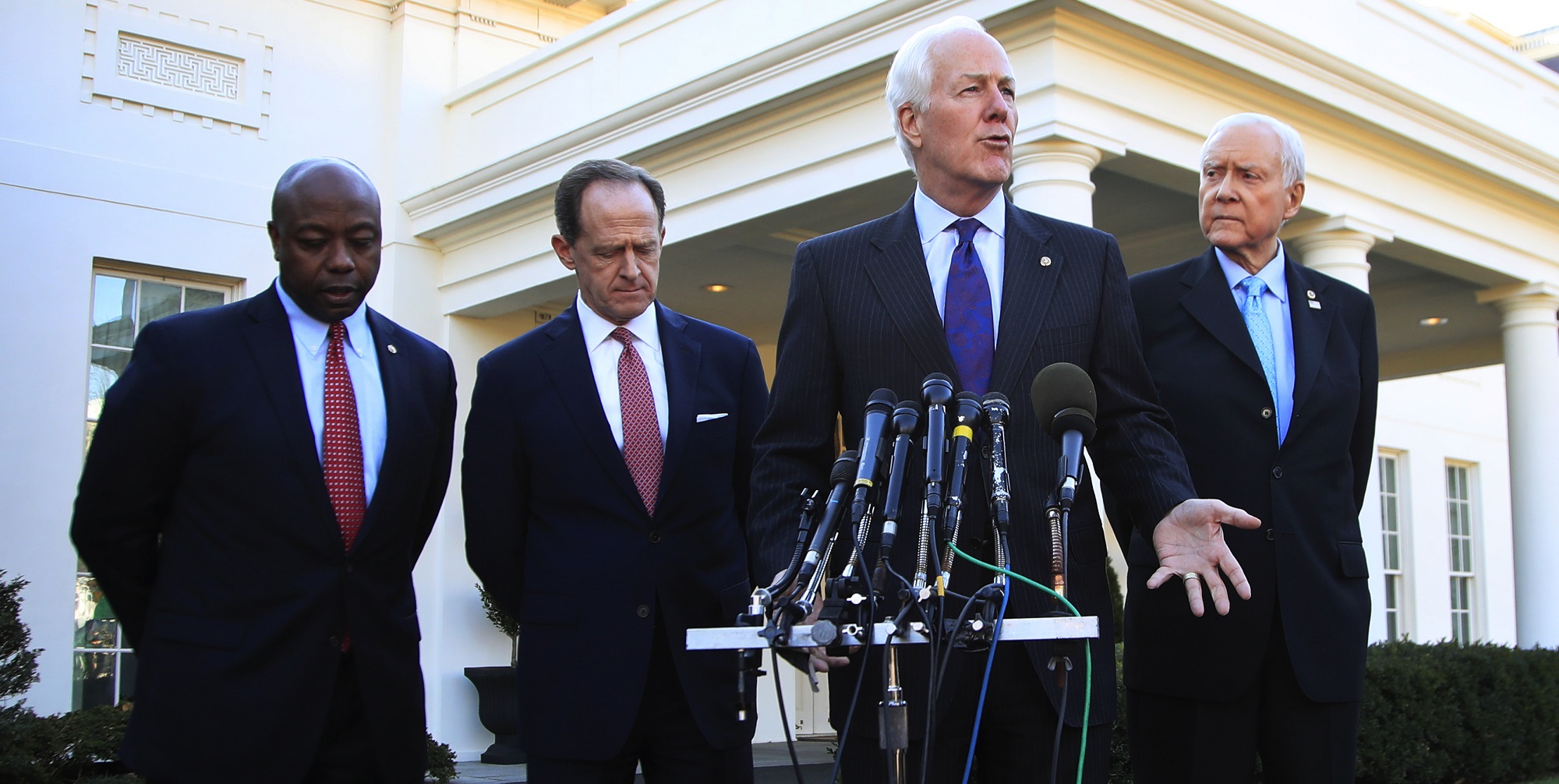
Senate Republicans are considering a trigger that would automatically increase taxes if their sweeping legislation fails to generate as much revenue as they expect. It’s an effort to mollify deficit hawks who worry that tax cuts for businesses and individuals will add to the nation’s already mounting debt. The effort comes as a second Republican senator, Steve Daines of Montana, announced Monday that he opposes the tax bill in its current form. Previously, Sen. Ron Johnson, R-WI, said he opposed the bill, leaving Senate Republicans no room for error as they hope to vote on the bill this week.
“We’re making progress, minute by minute, hour by hour, day by day. But we’re not there yet,” said Texas Sen. John Cornyn, the No. 2 Republican in the Senate.
Pressed on timing, he said the expectation is a vote this week. A new congressional estimate says the Senate tax bill would add $1.4 trillion to the budget deficit over the next decade. But GOP leaders dispute the estimate, saying tax cuts will spur economic growth, reducing the hit on the deficit. Many economists disagree with such optimistic projections. The trigger would be a way for senators to test their economic assumptions, with real consequences if they are wrong.
“Do we have realistic numbers and is there a backstop in the process just in case we don’t?” asked Sen. James Lankford, R-OK. “We should build in the ‘What if?’ What if this doesn’t work?” Lankford said. “What changes might be needed in the tax code in the days ahead to be able to adjust in what scenario?”
Bob Corker, R-TN, said the Trump administration and Senate Republican leaders are open to some kind of a trigger to increase revenues if the tax plan falls short.




